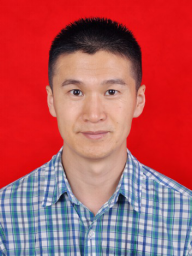
Education
09/2012–08/2015 Doctorate in Economics (Dr. oec,summa cum laude), Universityof Hohenheim, Stuttgart, Germany
Professional Experience (Academic/Non-academic)
02/2019 – presentResearch Fellow, Global Health Institute (GHI), Department of Medicine,Xi’anJiaotong University, Xi’an,
China
07/2018 – presentResearch Fellow, Global Labor Organization (GLO)
07/2017 – presentDistinguishedResearch Fellow, PhD supervisor(Young Talent Support Plan), School of Economics and
Finance, Xi’anJiaotong University, Xi’an, China
07/2017 – presentVisiting Senior Research Fellow, Department of Household andConsumer Economics, Institute for Health Care&PublicManagement, University of Hohenheim, Stuttgart, Germany
08/2015 – 07/2017Research Fellow(Postdoc), Department of Household andConsumer Economics, Institute for Health Care & PublicManagement, University of Hohenheim, Stuttgart, Germany
11/2015 – 12/2015VisitingResearch Fellow, Department of InterculturalCommunication and Management, Copenhagen Business School,Copenhagen, Denmark
11/2014 – 12/2014Visiting Research Assistant, Centre for Global Food andResources, Faculty of Professions, University of
Adelaide,Adelaide, Australia
09/2012 – 08/2015Research Assistant, Chair for Household and ConsumerEconomics, Institute for Health Care & Public Management,University of Hohenheim, Stuttgart, Germany
Main Fields of Research
·Health economics (esp. demographic and socioeconomic drivers of health outcomes, SES-related health inequality, biomarker applications in health economics)
·Development economics (esp. household food (in)security, under-five child undernutrition/mortality)
·Subjective well-being (esp. demographic and socioeconomic drivers of life satisfaction/happiness/depression)
·Labor economics (esp. long work hours, female behavior in labor market, job satisfaction and labor turnover)
·Genoeconomics (esp. practical applications of Mendelian randomization in health outcomes)
·The economics of ageing (esp. healthy ageing)
Peer-Reviewed Publications
1.Nie, P.*and Sousa-Poza, A. (2014), “Maternal employment and childhood obesity in China: Evidence from China Health and Nutrition Survey”,Applied Economics, 46(20): 2418-2428. doi:http://dx.doi.org/10.1080/00036846.2014.902025.
2.Nie, P.*, Otterbach, S., and Sousa-Poza, A. (2015), “Long work hours and health in China”,China Economic Review, 33: 212-229. doi:http://dx.doi.org/10.1016/j.chieco.2015.02.004.
3.Nie, P.*, Sousa-Poza, A., and He, X.B. (2015),“Peer effects on childhood andadolescent obesity in China”,China Economic Review, 35: 47-69. doi:http://dx.doi.org/10.1016/j.chieco.2015.06.002.
4.Nie, P.*, Sousa-Poza, A., and Xue, J.H. (2016), “Fuel for life: Domestic cooking fuels and women’s health in rural China”,International Journal of Environmental Research and Public Health, 13(8), 810. doi:10.3390/ijerph13080810.
5.Nie, P.*and Sousa-Poza, A. (2016), “A fresh look at calorie-income elasticities inChina”,China Agricultural Economic Review, 8(1): 1-29. doi:http://dx.doi.org/10.1108/CAER-09-2014-0095.
6.Bauer, J., Levin, V., Boudet, A.M.,Nie, P.*, and Sousa-Poza, A. (2017), “Subjective well-being across lifespan in Europe and Central Asia”,Journal of Population Ageing, 10(2):125-158. doi:10.1007/s12062-016-9148-0.
7.Nie, P.*, Nimrod, G., and Sousa-Poza, A. (2017), “Internet use and subjective well-being in China”,Social Indicators Research, 132(1): 489-516. doi:10.1007/s11205-015-1227-8.
8.Nie, P.*, Gwozdz, W., Reisch, L.A. and Sousa-Poza, A. (2017), “Values, norms and peer effects on weight status”,Journal of Obesity, vol. 2017, Article ID 2849674. doi:10.1155/2017/2849674.
9.Nie, P.*and Sousa-Poza, A. (2018), “Food insecurity among Europeans aged 50+”,Journal of Population Ageing, 11(2): 133-151. doi:10.1007/s12062-017-9177-3.
10.Nie, P.*and Sousa-Poza, A. (2018), “Commute time and subjective well-being in urban China”,China Economic Review, 48: 188-204. doi:http://dx.doi.org/10.1016/j.chieco.2016.03.002.
11.Nie, P.*, He, X.B., and Sousa-Poza, A. (2018), “Child loss and maternal wages in China”,Asian Population Studies, 14(1): 96-112.
doi:10.1080/17441730.2017.1405552.
12.Nie, P.*, Alfonso León, A.,Díaz Sánchez, M.E.,and Sousa-Poza, A. (2018), “The rise in obesity in Cuba from 2001 to 2010: An analysis of National Survey on Risk Factors and Chronic Diseases data”,Economics & Human Biology, 28: 1-13. doi:10.1016/j.ehb.2017.11.003.
13.Reza Oskorouchi, H.,Nie, P.and Sousa-Poza, A. (2018), “Floods and anemia of reproductive-age women in Afghanistan”,PLoS ONE13(2): e0191726. doi:https://doi.org/10.1371/journalpone.0191726.
14.Ma, W.L., Renwick, A.,Nie, P., Tang, J.J. and Cai, R. (2018), “Off-farm work, smartphone use and household income: Evidence from rural China”,China Economic Review, 52: 80-94. doi:https://doi.org/10.1016/j.chieco.2018.06.002.
15.Gwozdz, W.,Nie, P.*, and Sousa-Poza, A., et al. (2019), “Peer effects on weight status, dietary behavior and physical activity among teenagers in Europe – Findings from the I.Family Study”,Kyklos, 72(2): 270-296. doi:https://doi.org/10.1111/kykl.12197.
16.Nie, P.*, Ding, L.L., Sousa-Poza, A. (2019), “Decomposing adult obesity trends in China (1991-2011)”,Economics & Human Biology, 34: 5-15. doi:10.1016/j.ehb.2019.02.001.
17.Nie, P.*, Rammohan, A., Gwozdz, W., and Sousa-Poza, A. (2019), “Changes in child nutrition in India: A decompositionapproach”,International Journal of Environmental Research and Public Health, 16(10), 1815. doi:https://doi.org/10.3390/ijerph16101815.
18.Nie, P.*, Ding, L.L., Sousa-Poza, A. (2019),“What Chinese workers value: An analysis of job satisfaction, job expectations and labor turnover in China”,Prague Economic Papers(forthcoming). doi:https://doi.org/10.18267/j.pep.726.
19.Nie, P.*, Ding, L.L., and Sousa-Poza, A. (2019), “Obesity inequality and the changing shape of the bodyweight distribution in China”,China Economic Review, 58: 101348.doi:http://doi.org/10.1016/j.chieco.2019.101348.
20.Zhang, X., Kaiser, M.,Nie, P., and Sousa-Poza, A. (2019), “Why are Chinese workers so unhappy? A comparative cross-national analysis of job satisfaction, job expectations and job attributes”,PLoS ONE, 14(9): e0222715. doi:https://doi.org/ 10.1371/journal.pone.0222715.
21.Nie, P.*, Ma, W.L., and Sousa-Poza, A. (2020), “The relationship between smartphone use and subjective well-being in rural China”,Electronic Commerce Research(forthcoming).doi: 10.1007/s10660-020-09397-1.
22.Ma, W.L.,Nie, P., Zhang, P., and Renwick, A. (2020), “Impact of Internet use on economic well-being of rural households: Evidence from China”,Review of Development Economics(forthcoming). doi: 10.1111/rode.12645.
(*corresponding author)
Address
Xi’an Jiaotong University
Rm. 611, School of Economics and Finance
No. 74 Yanta West Road, 710061 Xi’an, China
Email:niepeng2017@mail.xjtu.edu.cn; niepeng1900@163.com